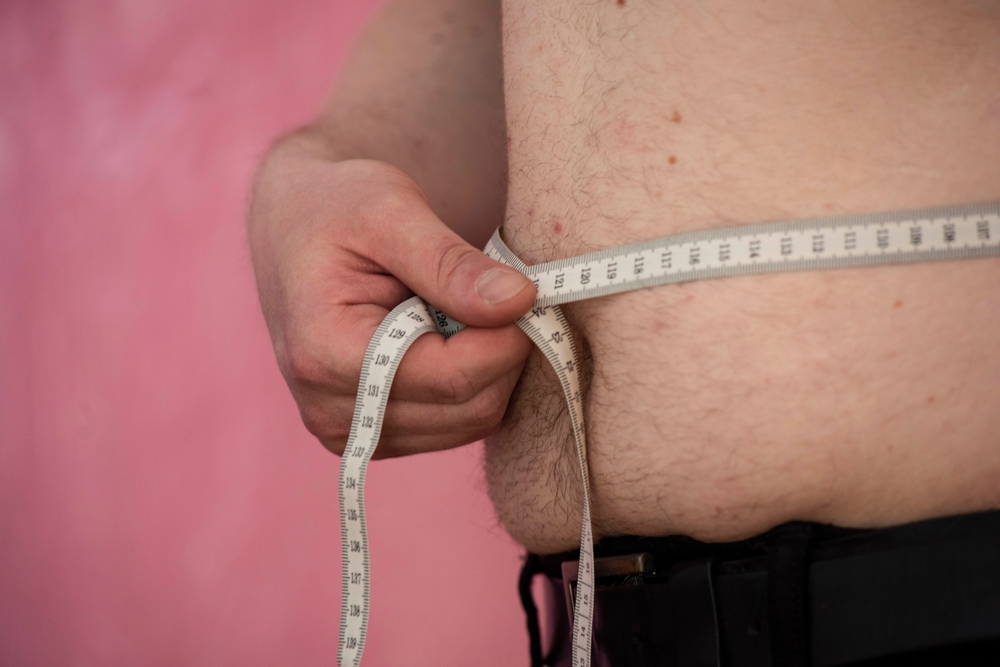Combating Weight Gain
May 01, 2025
As men transition through andropause, many find themselves battling an unwelcome guest: stubborn weight gain, particularly around the midsection. This phenomenon can be frustrating and concerning. However, understanding the reasons behind this weight gain and implementing effective strategies can help men maintain a healthy weight during this life phase.
The Andropause Weight Gain Connection
During andropause, several factors contribute to weight gain:
Hormonal Changes: Declining testosterone levels can lead to a decrease in muscle mass and a slowdown in metabolism. This makes it easier to gain weight and harder to lose it.
Insulin Resistance: Hormonal shifts can affect insulin sensitivity, potentially leading to increased fat storage, especially around the abdomen.
Lifestyle Factors: As men age, they may become less active, while their eating habits might not adjust accordingly.
Stress: Increased life stressors can lead to emotional eating and elevated cortisol levels, which promote fat storage around the midsection.
The Importance of Maintaining a Healthy Weight
Combating weight gain isn't just about aesthetics. Excess weight, especially around the abdomen, is associated with increased risks of heart disease, type 2 diabetes, and certain cancers. Maintaining a healthy weight is crucial for overall health and longevity.

Strategies for Combating Weight Gain
- Adjust Your Diet
Focus on nutrient-dense, whole foods. Incorporate plenty of fruits, vegetables, lean proteins, and whole grains. These foods provide essential nutrients while helping you feel full on fewer calories.
Practice portion control. As metabolism slows, calorie needs decrease. Using smaller plates and being mindful of portion sizes can help manage calorie intake without feeling deprived.
Limit processed foods and sugary drinks. These often contain empty calories and can contribute to insulin resistance.
- Stay Active
Incorporate regular exercise into your routine. Aim for at least 150 minutes of moderate-intensity aerobic activity or 75 minutes of vigorous-intensity activity per week.
Include strength training. Building and maintaining muscle mass can help boost metabolism. Aim for strength training exercises at least twice a week.
Find activities you enjoy. Whether it's cycling, swimming, or dancing, enjoying your exercise makes it more likely you'll stick with it.
- Prioritize Sleep
Aim for 7-9 hours of quality sleep per night. Poor sleep can disrupt hormones that regulate hunger and fullness, leading to overeating.
Establish a consistent sleep schedule and create a relaxing bedtime routine to improve sleep quality.
- Manage Stress
Practice stress-reduction techniques like meditation, deep breathing, or yoga.
Engage in hobbies and activities that bring you joy and relaxation.
- Stay Hydrated
Drink plenty of water throughout the day. Sometimes thirst can be mistaken for hunger.
Consider drinking a glass of water before meals to help with portion control.
- Be Mindful of Alcohol Consumption
Alcoholic beverages are often high in calories and can lower inhibitions, leading to overeating.
If you choose to drink, do so in moderation and be aware of the calorie content.
- Consider Hormone Optimization
In some cases, hormone replacement therapy may be recommended to address severe andropause symptoms, including weight gain. However, this should only be done under close medical supervision.
- Regular Health Check-ups
Regular check-ups can help monitor weight, body composition, and other health markers. Your healthcare provider can offer personalized advice and catch any potential health issues early.
The Power of Small Changes
Remember, combating weight gain doesn't require drastic measures. Small, consistent changes in diet and lifestyle can lead to significant results over time. Be patient with yourself and focus on progress, not perfection.
A Holistic Approach to Weight Management
Effective weight management during andropause goes beyond just diet and exercise. It involves a holistic approach that considers physical health, emotional well-being, and lifestyle factors. By addressing all these aspects, men can not only combat weight gain but also improve their overall quality of life during this transitional period.

Embracing a Healthy Lifestyle
Andropause may bring challenges, but it also offers an opportunity to reassess and improve your health habits. By taking proactive steps to combat weight gain, you're not just managing your weight – you're investing in your long-term health and well-being. Remember, it's never too late to make positive changes. With patience, persistence, and the right strategies, you can maintain a healthy weight and feel your best during andropause and beyond.

